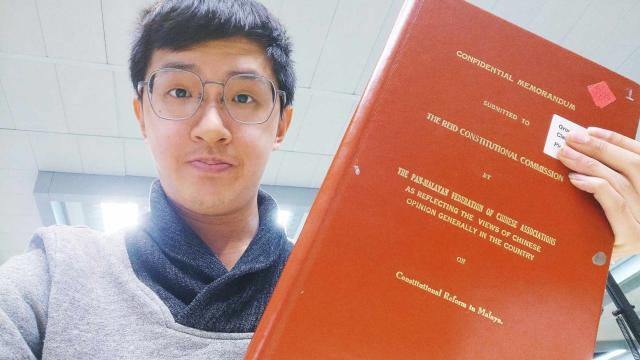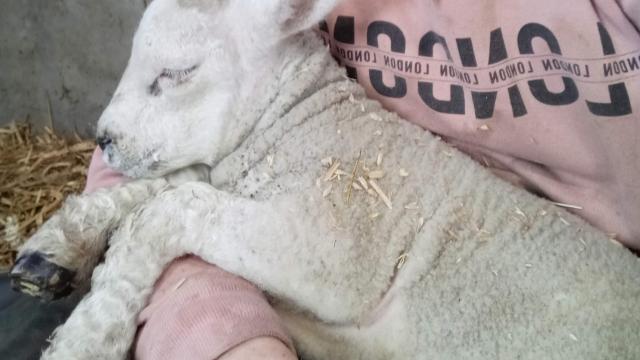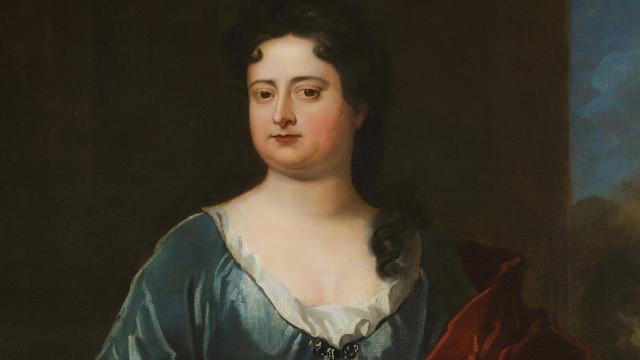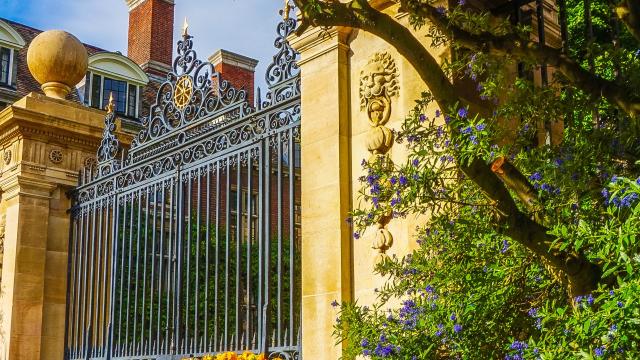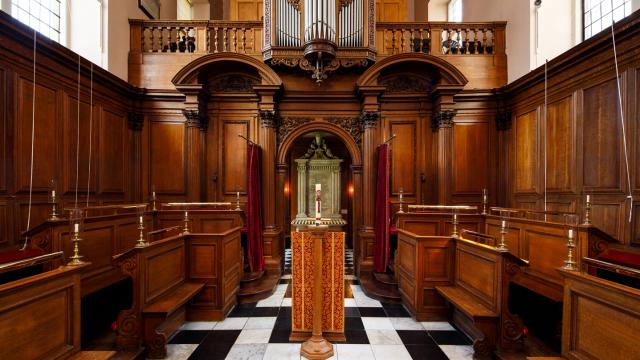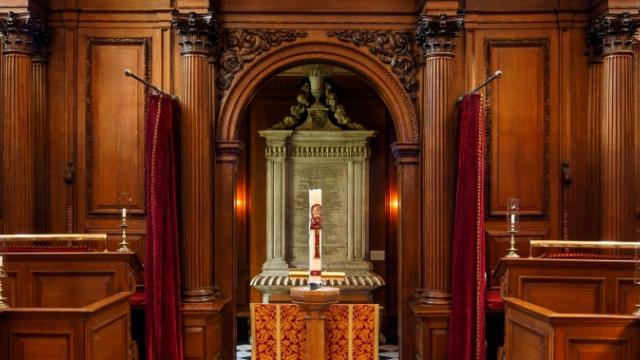What most people call 'science', Cambridge calls the 'Natural Sciences' (and hence 'natsci' is the local slang for a Cambridge science student). Most students who wish to study science in Cambridge would apply to read the Natural Sciences Tripos, whether they are biologists, chemists, physicists or geologists. Other Cambridge courses with 'science' in the title that are not part of the Natural Sciences Tripos include Human, Social and Political Sciences, Medical & Veterinary Sciences and Computer Science, although some courses in computing are also available to Natural Scientists. Experimental Psychology is a Natural Science subject in Cambridge, but psychology can alternatively be studied within the Psychological & Behavioural Sciences Tripos.
In their first year, Cambridge natscis must choose three science subjects plus one of the four alternative mathematics courses. The available science subjects are: Biology of Cells, Evolution & Behaviour, Physiology of Organisms (forming the ‘biological’ Natural Sciences), Chemistry, Earth Sciences, Materials Science and Physics (the ‘physical’ Natural Sciences). The mathematics courses are Mathematics Course A, Mathematics Course B and Mathematical Biology.
One of the best and most distinctive features of Cambridge Natural Sciences is the opportunity it gives students to explore a broad range of different disciplines, before deciding where their talents and interests are best suited: you don’t have to commit yourself to a single science at the beginning of your studies. All combinations are possible in theory. For their experimental subjects, most ‘physical’ Natural Scientists take Physics and Chemistry, plus either Materials Science, Earth Sciences or Biology of Cells. Most ‘biological’ natural scientists from St. Catharine’s tend to choose Biology of Cells and Physiology of Organisms, plus either Chemistry, Earth Sciences or Evolution & Behaviour. Students intending to specialise in Physics or Chemistry, with a strong background in mathematics, will usually take Mathematics Course B. Students with a weaker background in mathematics will usually take Mathematics Course A. Students intending to specialise in biological sciences with Mathematics at A2 Level will usually take Mathematical Biology, whereas those without Mathematics at A2 Level will usually take Elementary Mathematics for Biologists. Note that St Catharine’s favours applicants with A2 Level Maths.
Whichever first-year courses you opt for, each one comprises a total of 60 one-hour lectures, occurring every other day of the week (Sundays not included), together with related practical work which averages out to two to three hours per week per subject. Earth Sciences and Evolution & Behaviour also have University-run field courses away from Cambridge during the Easter vacation. Each course has associated with it a one-hour ‘supervision’, once a week, in which groups of two to four students explore with a supervisor the subjects of the lectures which they attended the previous week, as well as branching out into broader discussions of scientific discovery. These supervisions are organised by the particular College that you belong to. Our students therefore have individual access to specialist supervisors in each subject that they take: the supervisors might include lecturers, researchers or even professors in that field. Each student’s progress is overseen by a Director of Studies, usually a Fellow of the College, who will personally guide their work and monitor their progress.
The second year is organized along much the same lines as the first year, except that only three subjects have to be taken, the choice is larger (and the subjects correspondingly more specialized), maths is no longer compulsory and some project work may replace laboratory practicals. The second-year subjects are: Animal Biology, Biochemistry & Molecular Biology, Cell & Developmental Biology, Chemistry A and B, Ecology, Experimental Psychology, Geological Sciences A and B, History & Philosophy of Science, Materials Science, Mathematics, Neurobiology, Pathology, Pharmacology, Physics A and B, Physiology and Plant & Microbial Sciences. Most ‘sensible’ combinations are possible.
In the third year, most students specialize in one single subject chosen from an equally wide range, although a more general approach (pursuing two or three subjects) is also possible. Several subjects now offer both three- and four-year courses, so St Catharine’s advises all Natural Scientists to inform their Local Education Authorities that they are enrolled on a four-year course. Most third year courses include a research project as a significant (and exciting) component.
Faculty website: http://www.natsci.tripos.cam.ac.uk/prospective-students
St Catharine’s accepts some 25–35 natscis each year, including one or two who will move across to the Chemical Engineering Tripos in their second year: together they form more than 20% of the undergraduate population. The College is a lively and varied place to study Natural Sciences, not least because of the John Ray Society, the College Natural Science society. Named after the famous 17th century naturalist who was a member of St Catharine’s, and run by the undergraduates, the John Ray Society organises talks by visiting scientists and Fellows as well as social events for the College natscis. We also have an excellent and newly-refurbished library, well-stocked with the latest core texts, which is a pleasant place to work. There are a number of scholarships and prizes available for those natural science undergraduates who perform particularly well in their exams.
Rather than looking at the more superficial and obvious features, one of the best reasons to choose any particular College is on the grounds of who will be teaching you. Your supervisors and Directors of Studies represent your academic mentors through three or four years of study, and they can make a substantial difference to your enjoyment and success in a particular academic discipline.
Our Fellows in the Natural Sciences are the lecturers and researchers specifically attached to St Catharine's (as opposed to any other College), whose job it is to supervise and direct studies if you read Natural Sciences here. When not teaching students, they research such exotic subjects as ozone holes, complex networks, material for supersonic engines, bacterial genetics, cosmology, evolution of the ear and the sex-lives of lagoonal mudsnails. Several are also Fellows of the Royal Society, one of the highest distinctions for a scientist. Find out more about our famous natsci alumni!
The St Catharine’s Fellowship is particularly strong in terms of natural science teaching. Many of our Fellows have significant roles in teaching and examining the undergraduate courses for the University, which means that they are very well-placed to help our undergraduates. Catz Fellows whom you will find lecturing and running practical labs in courses that you might be considering taking in your first or second years here include Jeff Dalley (neuroscience), Jessica Gwynne (materials), Richard Harrison (earth sciences), Matt Mason (physiology) and Peter Wothers (chemistry). You may have seen Dr Wothers on television, giving the Royal Institution Christmas Lectures in 2012!
The St Catharine's Fellows share the responsibility of guiding our Natural Science students through their courses, and they conduct many of the supervisions personally. The interest that our Natural Science Fellows take in the academic progress of their students in St Catharine’s represents a key reason for our success in this area and the excellent postgraduate careers that our students are helped to pursue following their time here. Indeed, we feel that the particularly close mentoring between our Fellows and students represents one of the most important things which distinguishes St Catharine's from other Colleges.
For Natural Sciences admissions, St Catharine's does not require STEP papers, nor do we currently ask for any additional qualifications or tests beyond the Admissions Assessments required by the University in general. Our selection of Natural Science students is based on school record, references and performance in the written assessments and at interview. We are particularly keen to attract students with a genuine passion for science, from all walks of life!
Regarding subjects taken at school, in addition to the University guidelines (follow this link), we strongly recommend that biological candidates are taking full A Level (or equivalent) Chemistry and Mathematics, as many of the first year courses will prove difficult without this background. We also very much favour three science/maths full A Levels rather than two plus another subject. IB applicants are encouraged to take three science/maths subjects, with at least two at Higher Level (you may not be able to take three at HL). Strong aptitude in Maths is advantageous when applying for science at Cambridge, so Further Maths is valued just as much as other science/maths subjects, and counts as a 'full' subject in its own right. Candidates with subject combinations which differ from those mentioned above, and on the university website, may find themselves at a competitive disadvantage during the admissions procedure.
Applicants for Natural Sciences will be asked to express a course preference during their application: they must select a 'physical' or 'biological' preference. If you are not sure you neatly fit either of these two categories - for example if you think you might want to start your course with chemistry, biochemistry and physiology-type options - don't worry! Pick whichever preference you think fits you best. You could also email us, as we sometimes arrange a 'mixed' interview arrangement for some applicants. Please note however, that if you will want to study physics, you must select 'physical' as your preference.
Further details of entry requirements are available on the University website.
Find out about the general advice for anyone applying for undergraduate courses at St Catharine's.
Hi there, we’re Becky and Freya, two second year Bio NatScis at St Catharine’s. We think Natural Sciences at Catz is great and we know that you would too! The course itself is certainly challenging but also varied and rewarding, especially with the support that Catz gives us. St Catharine’s is a very strong college for NatSci, with some of the lecturers supervising you in first year, which is a huge advantage. The supervisors here are all very supportive and committed, often willing to go the extra mile to help solve problems you had with the lectures and frequently helping students find summer work and placements. Catz also gives you a lot of support and advice to help you manage a challenging degree alongside enjoying your time in Cambridge. You have a tutor in charge of your welfare but you also get college parents, one of which will be a second year doing your subject, who can help if you want to talk about your work or anything else that’s worrying you. Catz also has a very strong NatSci contingent every year – around 25 students (including bio and phys), so there are plenty of people to walk to lectures with and to share essays and discuss revision with before exams, so it’s much less stressful than tackling a subject alone! The John Ray Society is the Catz NatSci society and has loads of social events, talks by outside speakers and opportunities to talk to NatScis in other years about modules, internships and placements. All first year NatScis are automatically members and it’s a really good way to meet all the other scientists in college. Catz also has two great libraries which have all the books you’ll need for first year. Overall we think St Catharine’s is a lovely place to be and would really recommend it to anybody applying for Natural Sciences.
Freya Curtis and Becky Martin

